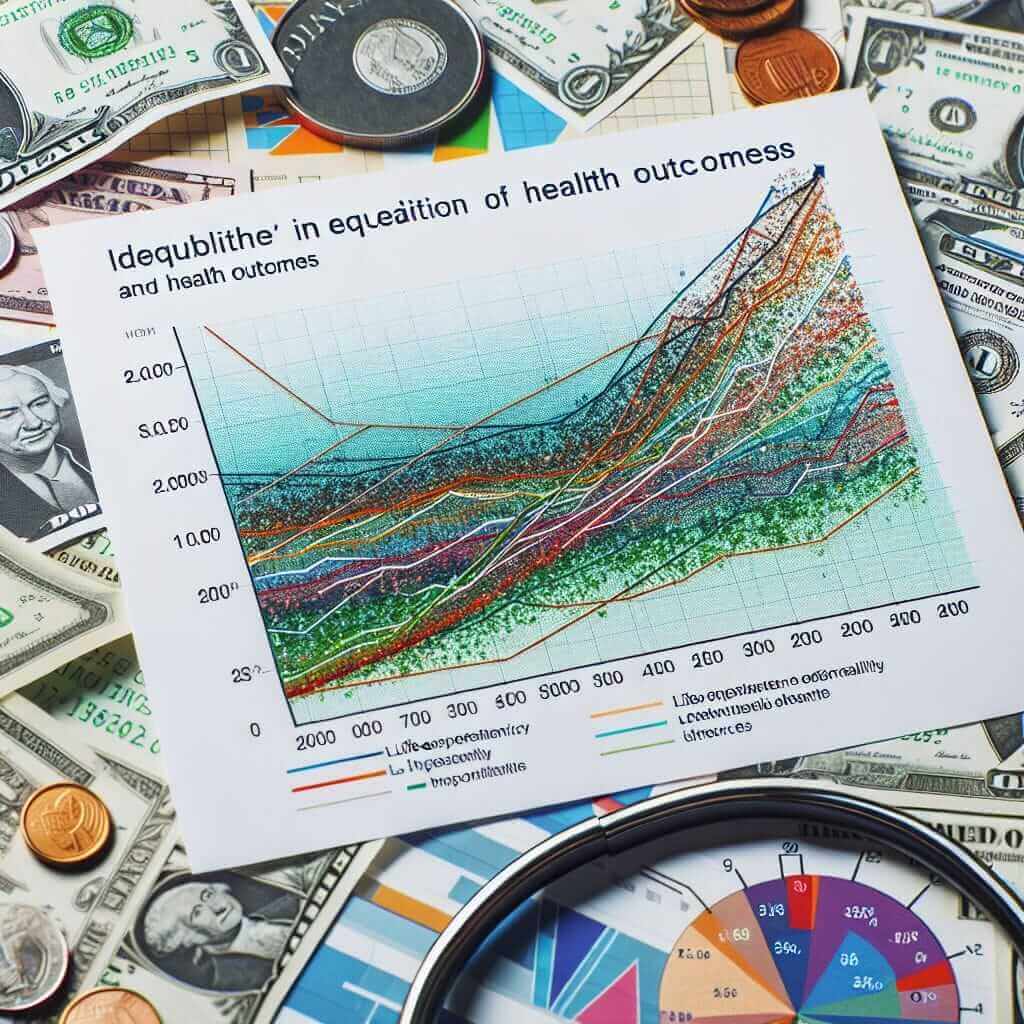The IELTS Writing Task 2 often delves into complex societal issues, and the link between “economic inequality” and “health outcomes” is a recurring theme. This topic explores the stark reality that your socioeconomic background can significantly influence your well-being. Let’s analyze how this theme appears in IELTS exams and equip you with the tools to craft a compelling essay.
Examining IELTS Writing Task 2 Questions
The impact of economic inequality on health is frequently examined in IELTS Writing Task 2, often through these question types:
- Cause and Effect: “Economic inequality is a major concern in many countries. What are the effects of this disparity on people’s health?”
- Problem and Solution: “Growing income gaps contribute to health disparities. Discuss the solutions to mitigate the negative health consequences of economic inequality.”
- Two-Part Question: “Some argue that healthcare should be free for all citizens, while others believe individuals should bear the cost. Discuss both views and give your own opinion.”
These questions, while phrased differently, all point towards the undeniable connection between economic well-being and individual health.
Sample Essay Question
Let’s focus on the following IELTS Writing Task 2 question:
“In many societies, there is a growing gap between the rich and the poor. What are the effects of this economic inequality on health outcomes?”
This question requires you to analyze the impact of economic disparity on the well-being of individuals and communities.
Essay Analysis
This question calls for a cause-and-effect essay structure.
- Introduction: Briefly define economic inequality and highlight its growing prevalence. State your thesis clearly, indicating that you will discuss the detrimental effects of economic inequality on health.
- Body Paragraph 1: Explain how limited access to healthcare, nutritious food, and safe housing due to financial constraints negatively affects the health of disadvantaged communities.
- Body Paragraph 2: Discuss the psychological toll of economic inequality, including stress, anxiety, and depression, which can lead to various health issues.
- Conclusion: Summarize the main points discussed and reiterate the importance of addressing economic inequality to improve overall societal health outcomes.
Model Essay
“In many societies, there is a growing gap between the rich and the poor. What are the effects of this economic inequality on health outcomes?”
Economic inequality, the uneven distribution of wealth and resources within a society, is a pressing global issue with far-reaching consequences. One of its most alarming effects is the detrimental impact on health outcomes, disproportionately affecting those at the lower end of the socioeconomic spectrum.
Primarily, economic hardship restricts access to essential determinants of health. Individuals and families struggling financially often lack the means to afford quality healthcare, nutritious food, and safe housing. This results in a higher prevalence of preventable diseases, malnutrition, and chronic conditions like asthma and diabetes among disadvantaged communities. For instance, inadequate sanitation and overcrowded living conditions, common in impoverished areas, can lead to the rapid spread of infectious diseases.
Moreover, the psychological toll of economic inequality cannot be disregarded. The constant stress of financial insecurity, coupled with social stigma and feelings of hopelessness, can lead to a higher incidence of mental health issues such as anxiety, depression, and substance abuse. These conditions, in turn, can manifest physically, increasing the risk of heart disease, stroke, and other chronic illnesses.
In conclusion, economic inequality casts a long shadow over the well-being of societies worldwide. The unequal distribution of resources creates a vicious cycle where poverty and ill-health perpetuate each other. Addressing this disparity is not just a matter of social justice but a crucial step towards building healthier and more equitable societies. (Word count: 280 words)

Essential Tips and Vocabulary
- Structure: Clearly outline your essay with an introduction, distinct body paragraphs addressing different facets of the issue, and a concise conclusion.
- Evidence: Support your claims with relevant examples, statistics, or studies to strengthen your arguments.
- Vocabulary: Use a range of vocabulary related to health and economics. Avoid repetition by using synonyms.
Key Vocabulary
- Disparity (noun) /dɪˈspær.ə.ti/: A noticeable and often unfair difference between two or more things.
- Socioeconomic (adjective) /ˌsoʊ.si.oʊˌiː.kəˈnɑː.mɪk/: Relating to the interaction of social and economic factors.
- Determinants of health (noun phrase): Factors that influence health, including social, economic, and environmental conditions.
- Prevalence (noun) /ˈprev.əl.əns/: The fact or condition of being common.
- Malnutrition (noun) /ˌmæl.nuːˈtrɪʃ.ən/: A state of poor nutrition.
- Chronic (adjective) /ˈkrɑː.nɪk/: (Of an illness) persisting for a long time or constantly recurring.
- Stigma (noun) /ˈstɪɡ.mə/: A mark of disgrace associated with a particular circumstance, quality, or person.
- Incidence (noun) /ˈɪn.sɪ.dəns/: The occurrence, rate, or frequency of a disease.
- Manifest (verb) /ˈmæn.ɪ.fest/: To show something clearly, through signs or actions.
- Perpetuate (verb) /pɚˈpetʃ.uː.eɪt/: To make something continue indefinitely.
Conclusion
Mastering the art of writing about complex issues like the impact of economic inequality on health is essential for achieving a high band score in the IELTS Writing Task 2. By understanding the nuances of the question types, structuring your essay logically, using relevant vocabulary, and providing strong supporting evidence, you can confidently tackle this important topic. Remember to practice regularly and familiarize yourself with a wide range of vocabulary related to social issues and health.